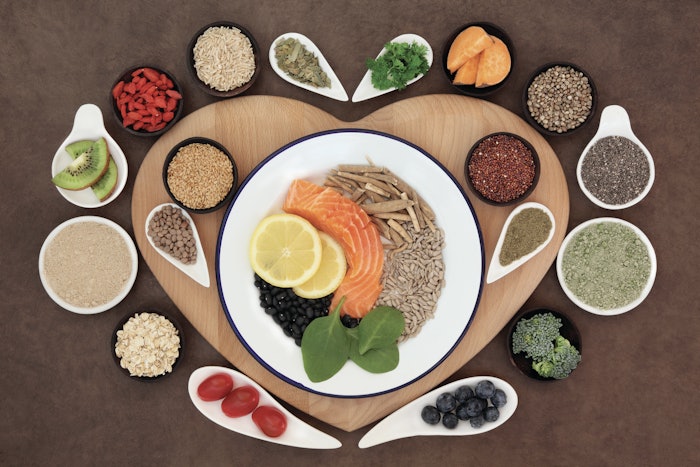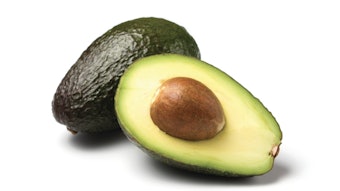
Nutrition plays a crucial role in maintaining health and well-being throughout our lives. As we age, our bodies undergo various changes that affect our nutritional needs. Check out the detailed nutrition recommendations below for different age groups and sex, helping you make informed choices to support your health at every stage of life. Pro tip: be sure to read the recommendations for every decade. At the end of the day, it’s all great advice to apply at any age!
Regardless of age, certain nutritional principles apply to everyone. Here are some key recommendations that form the foundation of a healthy diet:
- Balance: Focus on a diet rich in fruits, vegetables, whole grains, lean proteins and healthy fats. These foods provide essential nutrients that support overall health.
- Calcium and Vitamin D: Vital for bone health, these nutrients should both be included in your diet through dairy and fortified plant-based dairy products, leafy greens and fatty fish.
- Prioritize Protein: Maintaining muscle mass is crucial as you age. Ensure you're getting enough protein from sources like lean meats, poultry, fish, eggs, legumes and tofu. Aim for a balanced intake throughout the day to support muscle repair and growth.
- Fiber: Supports digestion and prevents chronic diseases. Aim for 25-31 grams of fiber per day from fruits, vegetables, whole grains and legumes.
- Omega-3 Fatty Acids: These healthy fats support heart and brain health and can be found in fatty fish, nuts and seeds.
- Hydration: Drink plenty of water to stay hydrated and support bodily functions.
- Snack Smart: Instead of reaching for sugary or salty snacks, opt for nutrient-dense options like nuts, seeds, fruit and yogurt. These snacks provide sustained energy and essential nutrients.
- Mindful Eating: Practice mindful eating by paying attention to your hunger and fullness cues. Avoid distractions like screens while eating and take the time to savor your meals. This can help prevent overeating and promote a healthier relationship with food.
Twenties: Building a Strong Foundation
Your twenties are a time of growth and development, making it essential to establish healthy eating habits that will benefit you in the long run.
- Staying Active: If you're physically active, make sure your diet supports your activity level. Include a mix of complex carbohydrates, proteins and healthy fats to fuel workouts and support recovery.
- For Women: Women should focus on getting enough iron, especially if they have heavy menstrual cycles. Iron-rich foods include spinach, lentils and red meat. Also important for women of childbearing age is folic acid which supports healthy fetal development and can be found in leafy greens, citrus fruits and fortified grains.
Thirties: Maintaining Vitality
As you enter your thirties you might experience changes in energy levels and as a result, weight fluctuations. Here are some nutrition tips to help you stay healthy:
- Prioritize Gut Health: A healthy gut is essential for overall well-being. Include probiotic-rich foods like yogurt, kefir, sauerkraut and kimchi in your diet to support a healthy gut microbiome. Prebiotic foods like garlic, onions and bananas also help nourish beneficial gut bacteria.
- Plan and Prep Meals: Life can get busy, making it easy to fall into unhealthy eating habits. Take time to plan and prep your meals for the week. This can help you make healthier choices, save money and reduce stress.
- For Women: Pregnant or thinking of becoming pregnant? Check out the recommendations for women in their twenties for more tips.
Forties: Adapting to Changes
In your forties, changes in hormones (for women) and activity level can impact nutritional needs. Here are some recommendations to help you adapt:
- Anti-Inflammatory Foods: Inflammation can become a growing issue as you age. Incorporate anti-inflammatory foods like turmeric, ginger, berries, leafy greens and fatty fish into your diet to help reduce inflammation and support overall health.
- Manage Stress with Nutrition: Stress levels can peak in your forties due to various life responsibilities. Incorporate stress-reducing foods like dark chocolate, green tea, nuts and seeds, which contain nutrients that help manage stress and improve mood.
- For Men: Men should focus on heart health by incorporating more omega-3 fatty acids and reducing saturated fat, added sugar and salt intake.
- For Women: Hormonal changes can significantly impact hunger and satiety signals. If you notice a significant change, speak to your physician. Heart disease is surprisingly the leading cause of death for women, so follow the same guidelines as men above.
Fifties: Supporting Healthy Aging
As you reach your fifties, your body undergoes significant changes that affect your nutritional needs. Here are some tips to support healthy aging:
- Protein: As we age, our bodies experience muscle loss (sarcopenia) and reduced protein absorption, making it crucial to consume adequate protein to maintain muscle mass, strength and overall health.
- Joint Health: Joint health can become a concern in your forties. Include foods rich in omega-3 fats as well as those high in vitamin C, like citrus fruits and bell peppers to support joint health.
- Vitamin B12: Important for nerve function and red blood cell formation, absorption of B12 decreases with age so it's crucial to get enough from sources like meat, fish, dairy products and fortified cereals.
- For Men: Men should focus on prostate health by including foods rich in antioxidants, such as tomatoes and berries.
- For Women: Women should continue prioritize bone health by ensuring adequate calcium and vitamin D intake, especially post-menopause.
Sixties and Beyond: A Focus on Longevity
In your sixties, it's important to focus on nutrient-dense foods to support overall health.
- Cognitive Function: Cognitive health is crucial as you age. Include foods rich in antioxidants and omega-3 fatty acids, such as berries, dark chocolate, nuts, seeds and fatty fish, to support brain health and reduce the risk of cognitive decline.
- For Men and Women: Everyone should focus on maintaining muscle mass by consuming a sufficient amount of protein and engaging in regular physical activity. Continue to pay attention to heart health by including foods rich in omega-3 fatty acids and reducing sodium, saturated fat and added sugar intake.
Nutrition is a lifelong journey that evolves with age. By understanding and adapting to your body's changing needs, you can support your health and well-being at every stage of life. Whether you're in your twenties or sixties, making informed dietary choices will help you live a vibrant and healthy life.










